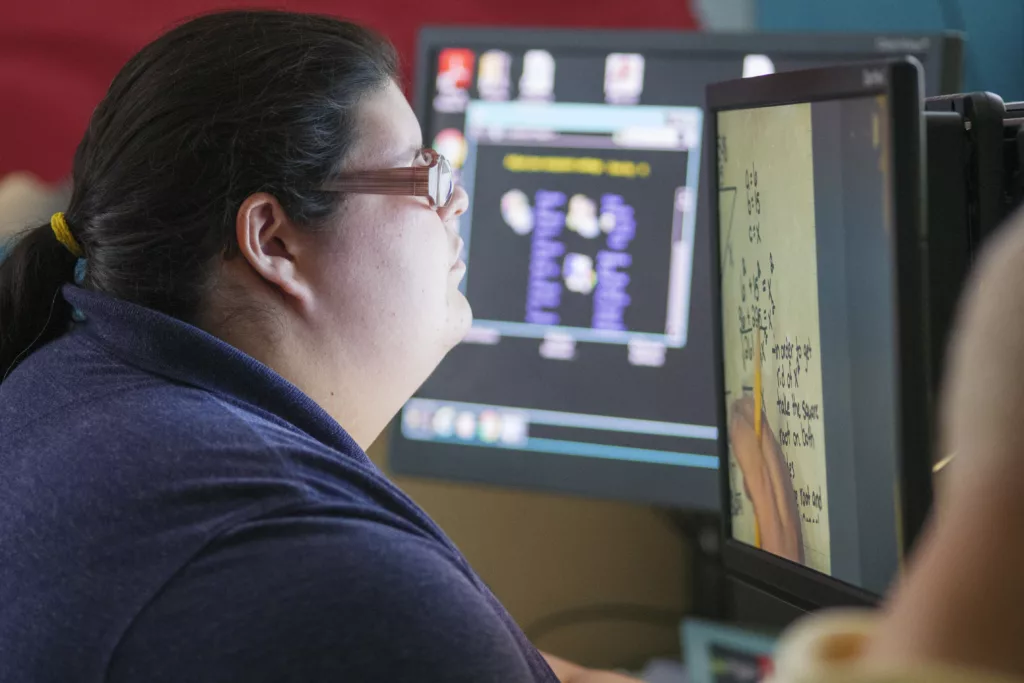First Day on the Job: Tips for Blind or Low Vision Teens
Jumping into the world of employment can feel like an adventure. How does a youth with vision impairment succeed in the early days of employment? It can be nerve-wracking for families, as you hope your youth will succeed and worry if they don’t get what they need. For youths, preparation plays a critical role in helping make that first day a success. Whether your first job is at a grocery store or a library, the early days can be a mix of nerves and excitement. Proper preparation can help ease those butterflies. Let’s start by learning from a young adult who took on a summer job, followed by some tips for success during your first few days of work.
Sean Fletcher’s Experience
Sean Fletcher is a Utah college student who is blind. He gained work experience in high school and, this past summer, worked at a transition to college/career program. His responsibilities included leading morning and midday modules, assisting teachers in various classes, and co-leading evening activities. Although Sean had some familiarity with the type of work, the level of responsibility and accountability was new. In previous jobs, he had more support and worked with familiar people. In contrast, this job introduced him to new staff, students, and a new campus. It also required him to travel independently to a different state.

Juggling Multiple Demands
For Sean, time management was crucial to his success, especially during those first days. He had to juggle multiple demands: schedule, travel, and preparation. Flexibility was key, as he often had to change plans or follow someone else’s lead at a moment’s notice. Time management quickly became a priority. He learned to estimate the time needed for tasks, used reminders to keep tasks organized, and managed his daily schedule and airport itinerary. His time management skills helped him conquer his anxiety. It also gave him the confidence to complete his tasks because he knew what needed to be done.
Social Demands
Another challenge Sean faced was building relationships with the new staff and students. Since everyone was unfamiliar, he quickly realized the importance of making good connections and knowing who to turn to for help or support. On his first day, he was very nervous about speaking in front of others. However, by day seven, he realized that his nerves were getting the best of him and that he was worrying too much about small details.
Self-Reflection
Sean also used reflection to improve. He evaluated what he did well and where he could improve each day. He sought feedback from his supervisor and focused on one action to improve each day. Positive thinking played a big role in boosting his confidence, as he focused on areas of success and used positive self-talk, even when nervous or unsure of tasks. For his next job, Sean plans to use the skills he developed, such as organization, time management, and preparation, to build an even stronger foundation of confidence. He learned that stepping outside of his comfort zone could lead to success.
Tips for Successful First Days
- Anticipate challenges and generate solutions: For example, if important information is posted on a wall, plan how you will access it. You can ask your boss to email the information or use an app to capture it.
- Ask clarifying questions: When unsure about instructions, ask clarifying questions to ensure you understand the details of your tasks. Practice this skill with a trusted family member or teacher.
- Arrive early or a day before: If possible, arrive before your shift to orient yourself to the work area. This can help you familiarize yourself with the layout. You might also ask your orientation and mobility instructor for help with this.
- Communicate your vision needs clearly: Be ready to explain your vision needs succinctly and clearly. This will help others understand where you’re coming from. Communicate both your visual and print access needs (what you can or can’t see and how you access information). If you haven’t drafted a one-page disability statement, now is a good time to do so.
- Have a tech plan: Whether using everyday technology like a phone or specific assistive tech devices, know which tools will help you do your job most efficiently. Remember, you may need a combination of technologies for success. Don’t forget a charger!
- Take notes: To remember key details, take notes using either high-tech or low-tech solutions. If you’re nervous, it’s easy to forget what your boss says. Writing notes gives you something to refer back to.
By applying these strategies, you can set yourself up for a successful start in your new job.